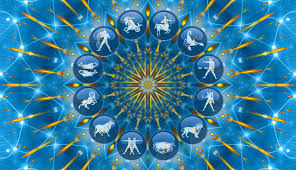People have gazed upward at the night sky and been awestruck by the wondrous heavenly phenomena that decorate it for the entirety of human history. Astrology is a branch of knowledge that was developed as a result of humankind’s long-standing fascination with and inspiration from the night sky, which may be traced back to the earliest known civilizations. But what does it mean, exactly, to believe in astrology? Is it a body of knowledge, a set of beliefs, or something totally different? We will investigate the significance of astrology in the modern world as well as the meaning of astrology itself throughout the course of this article.
At its foundation, astrology is a complicated system that aims to comprehend and make sense of the connections that can be drawn between astronomical events and everyday life on Earth. It is founded on the assumption that there is a significant relationship between the locations and motions of celestial bodies, such as the sun, moon, planets, and stars, and the occurrences and experiences that people have on Earth. This belief underpins the practice of astrology. According to astrology, the different facets of human existence, such as personality traits, relationships, and even future events, can be influenced and shaped by the various cosmic alignments that occur in the universe.
Ancient civilizations such as the Mesopotamians, Egyptians, and Greeks are where the practice of astrology can be traced back to its beginnings. This practice dates back thousands of years. Both astronomy and astrology were vital to ancient societies’ comprehension of the cosmos, which explains why the two fields were so intimately linked in these societies. The first astrologers carefully monitored and recorded happenings in the heavens, taking careful note of the recurring patterns and cycles they noticed in the heavenly bodies. These observations, made over the course of time, were utilized to build astrological systems over the course of time that attributed meaning and significance to the locations of celestial bodies.
The zodiac, which can be thought of as a circle with twelve divisions or signs that each represent a different time of year, is one of the most important ideas in the field of astrology. There are specific aspects of one’s personality, qualities, and facets that are connected to each zodiac sign. Aries, Taurus, Gemini, Cancer, Leo, Virgo, Libra, Scorpio, Sagittarius, Capricorn, Aquarius, and Pisces are the zodiac’s twelve signs. Pisces is the final sign of the zodiac. Astrologers are of the belief that a person’s zodiac sign may be deduced from the location of the sun at the moment of their birth, and that this in turn can shed light on their unique characteristics and tendencies.
The practice of astrology is based on the idea that celestial bodies can be thought of as emitting energetic energies or vibrations, which can then have a subtle effect on human beings. It is commonly thought that these cosmic forces generate a one-of-a-kind energetic blueprint for each individual, which is then referred to as a birth chart or a horoscope. A birth chart is a map that depicts the locations of the sun, moon, planets, and other heavenly bodies at the exact moment when a person was born. Astrologers interpret and make predictions about many elements of a person’s life based on the positioning of heavenly bodies and the interactions between them.
Astrology is frequently labeled a pseudoscience by its detractors, who argue that there is no scientific proof to back the assertions that astrology makes. Skeptics contend that astrology is based on broad generalizations and highly subjective interpretations, and that the discipline’s predictions are frequently ambiguous and prone to a wide range of interpretations. They contend that any apparent association between celestial events and human experiences can be traced to coincidence or psychological causes rather than any intrinsic cosmic impact, and that this is the case even if there is a correlation between the two.
On the other hand, advocates of astrology contend that it provides helpful insights into human psychology and has the potential to be an effective instrument for self-reflection and the development of one’s personality. They contend that the true value of astrology comes in the fact that it is able to offer a symbolic language with which to investigate the complexity of human nature. Studying the archetypal meanings that are associated with the signs of the zodiac and the positions of the planets can help individuals get a deeper understanding of themselves as well as the relationships that they have.
It is essential to keep in mind that astrology is not a deterministic system that can make absolutely surefire predictions about the future. Instead, it offers a framework that may be used to identify the potential influences and tendencies at play. Astrology urges people to actively create their life by exercising their free will and making deliberate decisions, as opposed to passively accepting a fate that has already been decided for them.
In recent years, there has been a rise in interest in astrology, particularly among younger generations. This trend is expected to continue. Astrology is now more readily available than it has ever been before thanks to the proliferation of online platforms and social media. Astrology is used by a lot of people as a tool for self-exploration, relationship analysis, and personal growth. The narratives in astrology provide a lot of people with solace and direction.
In the end, the meaning of astrology is multi-faceted, and it might be different for different people based on their point of view. Astrology has and will continue to attract and intrigue people all over the world, regardless of whether you consider it to be a science, a belief system, or a psychological tool. Its ability to bridge the gap between the heavenly and the human is at the heart of its enduring appeal. It provides a lens through which we may ponder the great mysteries of the world and our role within it, and this is what gives it such staying power.
![]()
